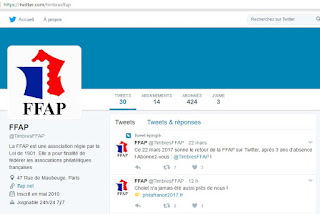Non-religious Easter and personal interests: let's eat fair and sustainable chocolate Britishly and Commonwealthly! With philatelic nibs here and there:
open class.
If chocolate has been of course a good part of comfort eating in my youth, it was surely more for the sugar in it until I looked for taste two decades ago.
This search finds an interesting and unexpected turn four years ago, April 2013, during the first of my yearly trip to
Chester, north-west of England. I was early for a meeting under the Victoria clock on Eastgate when I noticed the modest but joyfully pastel display of a
Rococo Chocolates shop... far more modest than the exaggerated and nauseating - and I love chocolate... - fountains of liquid chocolate by their luxuous competitor down the street.
The shop employees were very courteous, not invading in their advices, but open to conversation on a the work of chocolate. I discover back home that it was opened in 2012 in this provincial
timbered house town by a London-based chocolate-maker
Chantal Coady, at work since 1983.
Now how will I go back to philately? The bags.
From the plastic ones four years ago (and banned for obvious sustainaible reasons by the European Union members) to the cardboard ones nowadays (next picture), Rococo promotes itself with reproduction of chocolate moulds, in their engraving forms.
 |
| The current cardboard bag at Rococo Chocolates. Engravings and chocolate... Let's pray I haven't brought ideas in the mind of Royal Mail and La Poste salesmen: the philatelic program reissued in chocolate form for Christmas. |
Easter eggs, birds and fishes, and a cut pod full of cocoa beans. Hmmm.
New issues discovered during my last visit, January 2017, were the sale of a new jute/juto bag - the first picture of this article - and
the Chester shop going to
move in May to Northgate Street, on the other side of Chester Cathedral. The current store location was chosen by the initial links between Coady's company and the real estate group
Grosvenor in London, but put between a restaurant and the hall of Grosvenor Hotel.
The new one, between a small post office and a cheese shop, will have more space that will enable tea house activities and chocolate making and tasting sessions in the basement. "Made in Chester". Can I wait until my 2018 pilgrimage to
the Roman city.
For now, let's stick with my 2017 purchase.
Compared to the four previous visit to
Rococo Chester, this year I got more freedom concerning luggage size imposed by low cost airline companies. After a hanful of floral decorated and tasting
Bee Bars, I accepted the manager's proposal for
Artisan Bars ; for philatelic purposes: if the former are like single definitive postage stamp, the latter are booklets of stamps :)
I even listened - and was successfully sold - the history of
The Grenada Chocolate Company, whose drawn landscape packaging make its bars illustrated stamp booklet.
 |
| The full packaging... No, sorry, no picture of actual chocolate: how could I and my colleagues during a Friday noon lunch have succeeded to save a bit of chocolate for illustration. But what a tasteful memory... |
Tree-to-bar chocolate the motto claims. The company, founded 1999 by three gentlemen, is a cocoa farmers' and chocolate makers' cooperative in Hermitage,
Saint Patrick Parish,
Grenada, the former
British colonies in the Windwards Islands.
20 hectares of cocoa trees are exploited in a organic - or the trees - and fair - to the farmers - way ; the chocolate factory tries to be as sustainable and self-sufficient as possible, with sun panels and batteries for example.
Rococo's website told how this organisation helps the cooperative survived Ivan and Emily consecutive hurricanes in 2003.
Organic agriculture, fair trade with farmers and distribuotrs, sustainable energy production... But what of transportation to the continents of consumption?
Hence the out-of-design back and white sticker on the wrapper - an overprint?-, that provides a good story for chocolate shopkeepers: "A Class - Fair Transport".
 |
| The Tres Hombres in 2013 : 32 meters, 35 tons of cargo (including Grenada chocolate bars), 5 profesional sailors, room for 10 trainees - meaning you (Fairtransport.eu). |
Fairtransport is a Dutch company created by three men in 2007. They have been renovating old sailing ships to put them back on the seas for a carbon free transportation of goods. Another way of thinking before reading
Seija-Riitta Laakso's thesis on the sail against steam speed competition in the 19th century.
 |
| Map of the current Fairtransport routes accross the Atlantic Ocean and the North Sea. But forget containers, loading's the old way. But has every order to be done in a haste? (Fairtransport.eu) |
The company has
a project for a modern sailing ship and formed
an alliance with two other sailing shipping companies. The sticking label guarantees 90% of transportation are carbon-free: 10% being the
usual first/last kilometer problem.
Let's conclude on Grenada before the offensive on the family's Easter lamb and chocolate dessert: a very pronounced tasting chocolate, less sweet, whose raw material farmers are respected, whose industrial added value is spent in the country of origin's economy, and whose transoceanic transportation isn't polluting.
That justifies the prices at Rococo Chocolates and an Easter time thought:
Do we have to stuff ourselves with food to be happy?
This article is inspired by two articles published Saturday 15 and Sunday 16 April 2017 on SébPhilatélie, my blog in French.






















